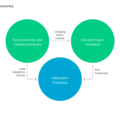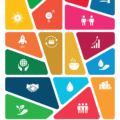Toward just and inclusive energy transitions

© Pogonici | Dreamstime
IIASA research based on extensive dialogue with stakeholders involved in energy policy development and its implementation in Mexico, revealed that there is little agreement on an institutional and regulatory framework for the deployment of renewable energy sources despite the widespread use of social impact assessments (SIAs) in the country. The researchers found that one of the reasons for the low efficiency of SIAs and the slow implementation of social management plans, was the low level of involvement of local communities and civil society. The study’s findings aim to make energy policy stakeholders in Mexico aware of potential improvements in development and the implementation of SIAs through stakeholder engagement and the facilitation of compromise-oriented policy solutions at various governance levels.
Despite decades of efforts by the Nepalese government, the country has not been able to achieve its renewable energy goals. IIASA researchers wanted to explore the hypothesis that uncertainty in energy policy and planning gaps were connected to the dominance of a limited number of stakeholders’ views being taken into account, while other significant voices were being ignored. To this end, different stakeholder preferences around five alternative hydropower schemes and nine different hydropower perspectives applicable in the Nepalese context were analyzed. The aim was to prioritize the different options to help identify a suitable strategy or policy to maximize national benefits and help Nepal realize its massive renewable energy potential. This could in turn help the small mountainous country to meet its energy demand sustainably, while also stimulating economic activity and socioeconomic growth.
Another study focused on energy transition and associated stakeholder discourses in Austria. The researchers collected data through in-depth qualitative interviews with different stakeholder groups in three Austrian Climate and Energy Model Regions (Baden, Ebreichsdorf, and Freistadt). The data was consequently analyzed in order to identify elements and narratives of various discourses. The findings revealed major elements of hierarchical, egalitarian, and individualistic discourses that can be useful in the development and implementation of energy policy measures to turn awareness about energy transition into action, and to develop compromise solutions that consider the views of different stakeholder groups.





